Losing out on school: how conflict and hunger rob children of their futures
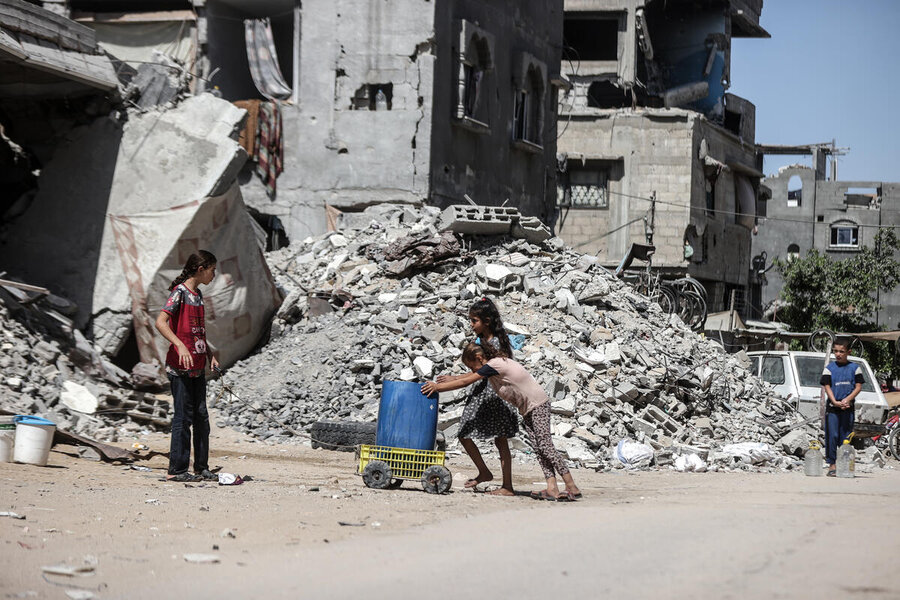
In Gaza, 12-year-old Ahmad has lost nearly a year of schooling, as bombings and airstrikes drove his family from one short-lived shelter to another. Tired, sad and depressed, he is studying again - in a tent, as part of a temporary learning initiative.
In her village in Sudan’s West Darfur region, Samar once eagerly attended class, especially math, her favorite. Today, she lives in a teeming refugee site just across the border in Chad, fetching water and milling sorghum so her family can survive.
In Haiti’s capital Port-au-Prince, where armed group violence has uprooted hundreds of thousands of people, Sherline and her six children count among the many turning one-time classrooms into shelters. Homeless and single since assailants torched her neighborhood and killed her husband, she worries about her children’s future. “They haven’t been to school in three years,” she says.
Worldwide, conflict and instability are robbing millions of children of an education - and, for the hungriest in the countries where we operate, of hearty, nutrition-packed World Food Programme (WFP) meals.
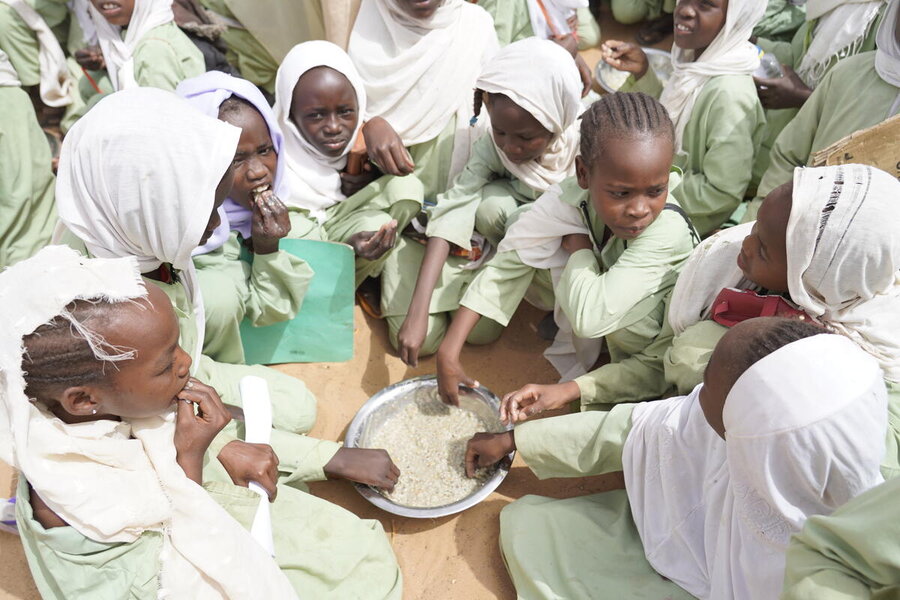
But the scars of violence stretch further and deeper than lost learning, WFP and other experts say. Schools provide children and communities with a sense of normalcy. They can help young students process the trauma of conflict, and prevent them from joining armed groups or getting attacked. And because they can gather children and parents from different places, backgrounds and ethnic groups, schools can also help build peace.
“When conflicts and disasters happen, school children are often the most forgotten group - the focus tends to be on life saving,” says Edna Kalaluka, WFP’s regional school feeding advisor for Eastern Africa, who previously served in our Sudan office. “Education is one big investment that parents hope for. It helps kids to feel normal, to interact with their peers, to laugh, to share memories.”
In four conflict-torn places where we operate - Gaza, Sudan, Haiti and Ukraine - we spoke with children, parents, teachers and our own experts about what it means to lose out on school. We are withholding many last names for safety reasons.
Gaza
Ahmad’s family moved from the West Bank to Gaza in hopes he and his siblings would receive quality schooling. “I want my kids to have a better life than mine,” says Ahmad’s mother, Nour.
But nearly a year of war has destroyed or damaged roughly 560 Gazan schools, experts say, and deprived hundreds of thousands of traumatized kids of an education. Ahmed has seen bodies torn to shreds by bombings and survived multiple displacements to crowded tent camps, where temperatures soar in the summer and freeze in winter.
“I fear bombings and airstrikes,” says Ahmad, whose family now lives in the central town of Deir al-Balah. “I fear when a house or tent nearby suddenly explodes and disappears.”
For now, he goes to an ‘educational tent,’ where WFP supplies young students with date bars and other nutritious snacks to stave off soaring hunger and malnutrition that stalks the enclave.

“This initiative tries its best to embrace kids by offering them a safe space and taking them away from difficult tasks they shouldn’t be doing,” says teacher Ikram, who founded the educational initiative.
“If the war ends today, it’s going to be extremely difficult for kids to go back to schools,” Ikram adds, “or to any shape of educational normalcy.”
Sudan
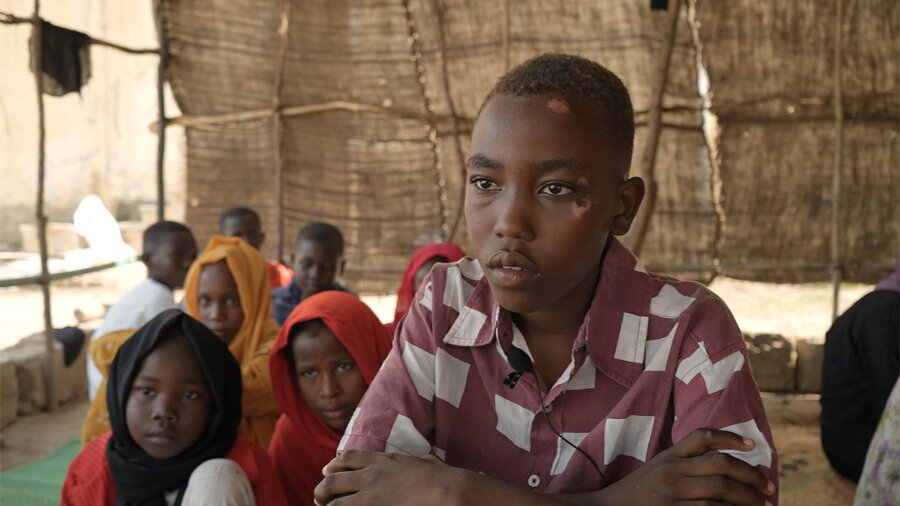
For 13-year-old Mohamed, school and his home in Khartoum are a distant dream.
“The thing I loved most about school were my teachers,” says Mohamed, whose family found refuge in Sudan’s eastern Kassala State. He still hopes to be an inventor when he grows up, “and make a car that can take you anywhere.”
Thousands of kilometres west, Sudanese refugee Samar wants to be a doctor. “So many people in my community are sick,” she says. “I want to go back to school and heal people.”
But like Mohamed, she cannot study. There is no formal school at Chad’s Adre refugee camp where she now lives, in a tiny straw hut with her family.
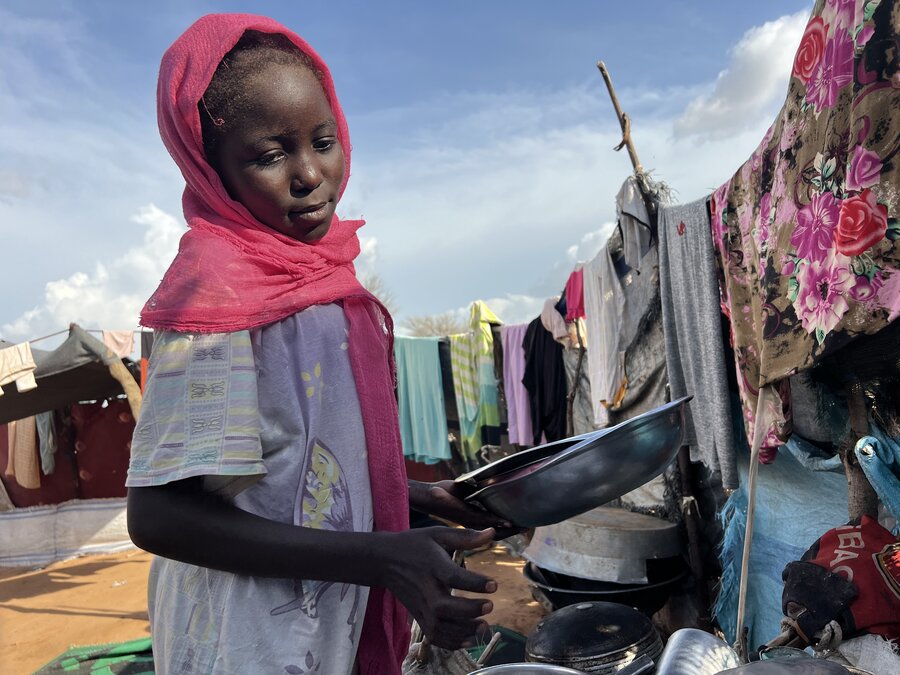
Before Sudan’s war, its children already faced hunger and learning challenges, says WFP School Meals Officer Enas Gaafar. WFP’s school feeding programme offered an antidote to both: targeting roughly 1.2 million children before the conflict, it filled young stomachs and offered parents an incentive to send and keep their kids in school. This academic year, WFP aims to reach less than half that student number.
“The war’s impact is huge,” says Gaafar of the shuttered schools in many parts of the country. “My own children have been affected. Children have lost more than a year without learning. And children are a country’s big investment.”
Haiti
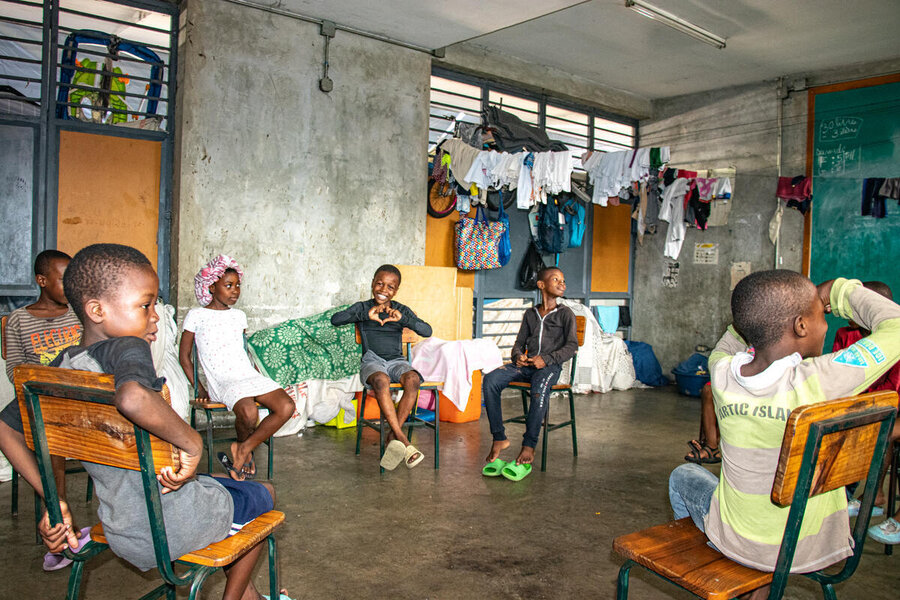
In Haiti, violence and instability have shuttered hundreds of schools and sent child hunger soaring, especially in Port-au-Prince and the northwestern Artibonite department. The unrest has sharply shrunk the numbers of learners in places like Argentine Bellegarde National School, in downtown Port-au-Prince - which once boasted more than 500 students.
Today, students from two schools pack its premises; each group attends class on separate days. They share the space with displaced people like Sherline, whose tents line the halls. Tensions are growing with school parents, who want those displaced to leave.
“I have no support, and I am worried I will have nowhere to go when I am forced to leave this place,” Sherline says.
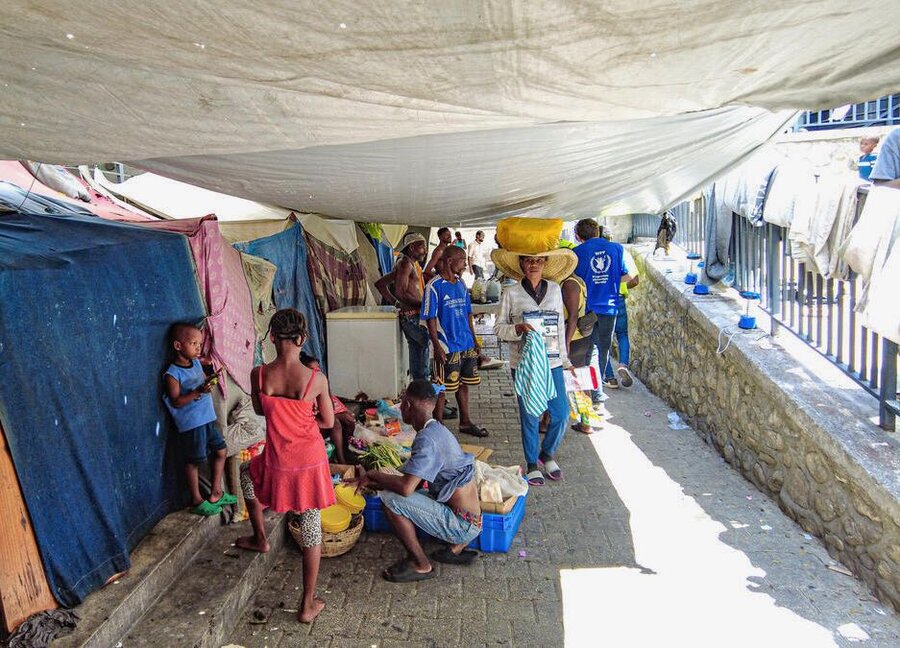
Along with cash for those displaced, WFP provides hot lunches to Argentine Bellegarde students - who count among nearly half-a-million in Haiti projected to receive WFP school meals this coming academic year. Some establishments serve an additional role: as informal safety nets for violence-affected children.
“A lot of schools are welcoming in students with no resources,” says WFP School Meals Officer Tony Desiral. “Some kids receive their only meal of the day at school - and in some cases they return home to share it with their siblings.”
Ukraine
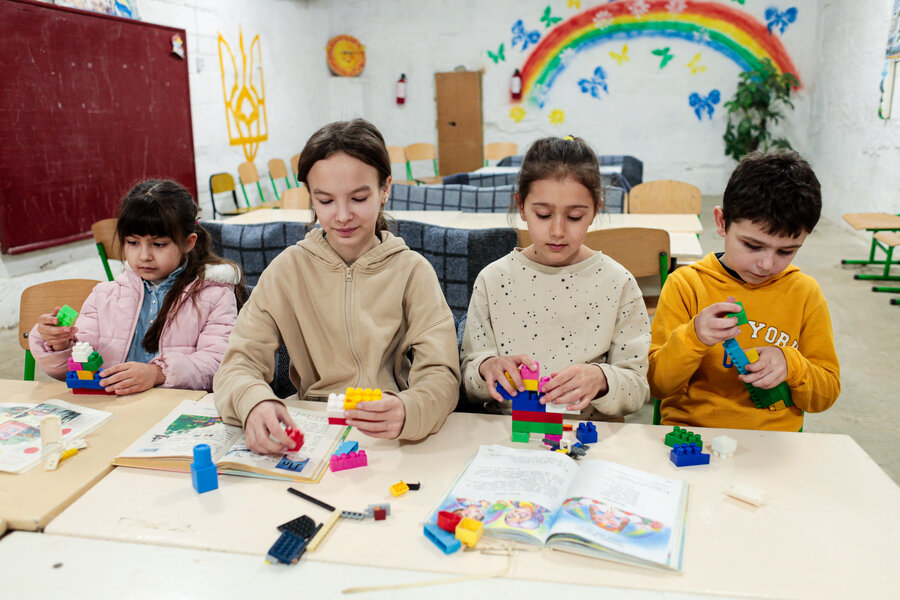
Many Ukrainian children can still go to school, despite the 2022 war that broke out in their homeland. But like in other conflict-hit countries, fighting has destroyed or damaged hundreds of schools. Studying in bomb shelters and remotely has become the new normal.
Last academic year, WFP’s hot meals reached nearly 90,000 primary school children in Ukraine. This year, we plan to double that number.
“The school feeding programme helped us a lot,” says Roman, who heads Sarata Gymnasium, a primary school in Ukraine’s southern city of Odessa. Thanks to WFP and local government contributions, he adds, “it allowed us to reduce by 50-80 percent the food costs parents needed to pay for their kids’ meals.”
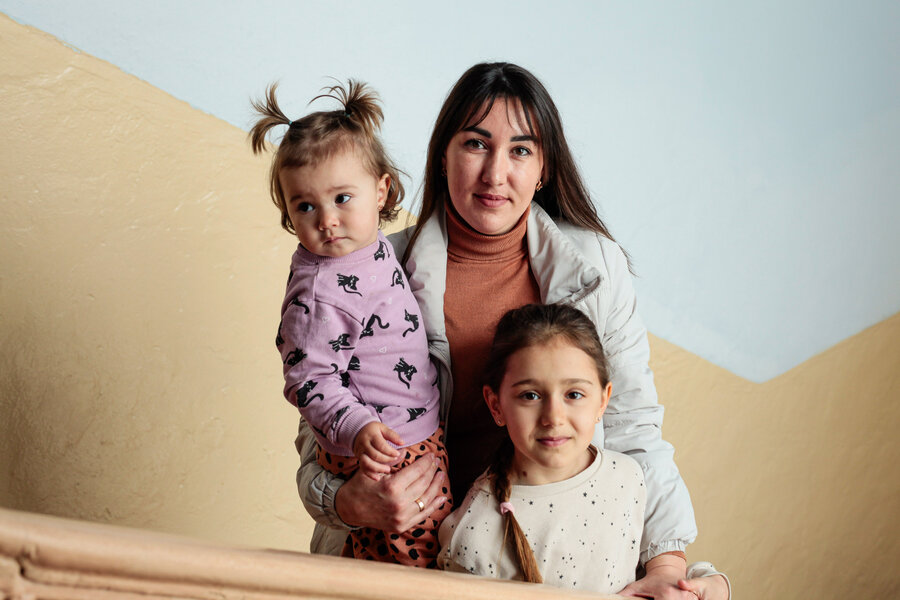
Still, the war has been difficult for young pupils, Roman says. So, along with lessons, Sarata Gymnasium offers lots of after-school activities and psychological support. Learning in bomb shelters no longer stirs alarm. “Teachers and psychologists work with students in the shelter,” Roman says.
Mother Regina, whose nine-year-old daughter Sabina is enrolled at Sarata Gymnasium, said the start of last school year was difficult. Air raid sirens kept going off.
“But she is already used to it,” she says of Sabina.
When she grows up, Sabina would like to work with dolphins, Regina says. “For me, the most important thing is my daughter is happy,” she says, “and my biggest wish is that the war ends.”



